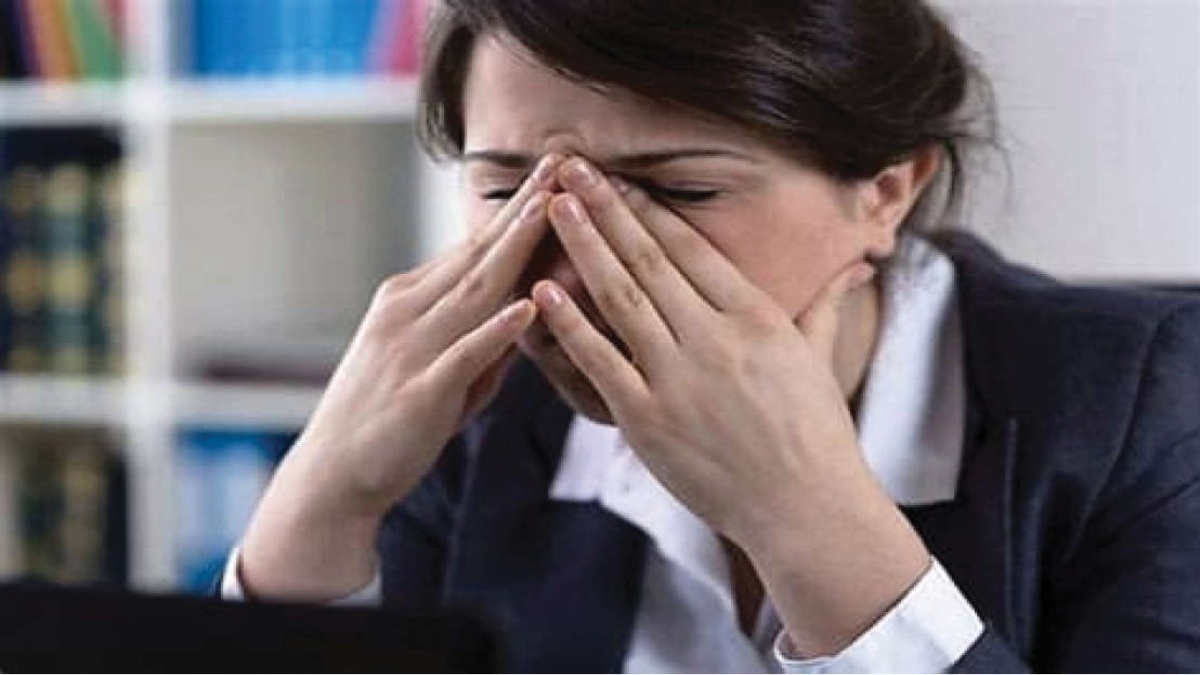Sinus problems can affect people of all ages. Pollution, allergies, a sudden shift in temperature during winter, a deviated nasal septum and common cold, among other reasons, can trigger this condition. Sinus problems are more common during winter, summer, and humid seasons. There is a 30% spurt in sinusitis cases every year, reveal studies.
“Sinusitis is the inflammation of paranasal sinuses, and it presents as blocked, stuffy nose, postnasal drip, itching in throat, cough and headache. Sinusitis is very prevalent at the change of seasons and can persist for weeks,” says Dr Richa Sareen, Consultant, Pulmonology at Fortis Hospital Vasant Kunj, Delhi. It can be differentiated from flu, as it is generally not associated with fever, malaise or body ache. Dr Sareen adds that people who are prone to sinusitis must take extra precautions in winters. It is advised to take hot water steam twice a day and keep yourself warm, have plenty of warm fluids, such as soups and ginger tea, avoid chilled and cold drinks and any cold blasts of air. If there are more symptoms, it is recommended to contact your doctor for medication.

What causes sinusitis? Dr Divya Prabhat, ENT specialist at Bhatia Hospital, Mumbai, answers, “During winter months, wind speed is slow and mostly stagnant, which results in smoke and fog to accumulate at one place. This is a trigger for allergic rhinitis which is usually the cause of most cases of sinusitis. The result is the swelling of the lining of the sinuses which blocks its natural drainage leading to sinus headaches and infections. In addition to steam inhalation, use of a humidifier and even a neti pot will facilitate the physiological mucociliary clearance of the paranasal sinuses as they condense the mucus and clear the blocked sinuses during the winter season.”
The symptoms of sinusitis can be a headache, runny nose, swelling of the sinuses, nasal congestion, nasal discharge, and breathing problems. Those with chronic sinusitis may also experience facial, upper jaw, and tooth pain. People are also likely to have postnasal drip, sore throat, loss of taste due to congestion and fatigue. People with poor immunity and diabetes are more susceptible to the condition.
Dr Sanjiv Dang, ENT at Apollo Spectra Karol Bagh, Delhi, shares some ways to keep sinusitis under control in winter. Besides steam inhalation, which will clean the sinuses, keep the cavities humid and prevent the aggravation of sinusitis or the start of a fresh episode, he advises to stay away from ice-cold beverages and fried foods, increase the intake of fruits which boost immunity, wearing proper clothing (warm sweaters and socks) and not hesitating to use anti-allergy and/or nasal decongestant drops, if required. Dr Dang adds that pollution, global warming, sedentary lifestyle and injudicious and improper use of antibiotics are some of the reasons behind the increased incidence of sinus issues year on year. While increasing pollution blocks ventilation, the larger phenomenon of global warming is creating problems in our ecosystem, which, directly and indirectly, influences sinus ailments. To make it worse, a sedentary lifestyle with no outdoor games or exercise, poor intake of fruits and green vegetables, and no yoga, steam inhalation or breathing exercises lead to poor immunity and, as a result, make you more prone to sinusitis.
Talking about the treatment of chronic sinusitis, Dr Rohit Udaya Prasad, Consultant, ENT and Hearing Implantology at Aster RV Hospital, JP Nagar, Bengaluru, says, “Chronic sinusitis is medically managed as well as surgically. Nasal steroids in the form of sprays reduce and prevent inflammation. Regular nasal irrigation with saline helps to clear secretions. In the case of polypoidal changes inside the nose, oral steroid/intravenous steroids are used to relieve symptoms of inflammation. If there is evidence of bacterial infections, antibiotics are used. Surgical treatment involves functional endoscopic sinus surgery.”
DO THESE ASANAS FOR RELIEF
1. The primary way to treat sinusitis is by draining the sinuses, eliminating pollutants and allergens, and improving respiratory capacity. This is often achieved by antihistamines, decongestants, antibiotics, and even the use of air purifiers. A very useful and scientifically proven yogic technique for draining the sinuses is Jala Neti or saline nasal irrigation. In this technique, warm saline water is poured down one nostril through a neti pot till it comes out of the other nostril. This helps clear allergens, dirt, and debris from the nasal passages. Regular practice has been found useful not just in sinus drainage but also in harmonising the secretions of the eyes, nose, and throat.
2. Bhramari Pranayama has also been effective in this condition. When practised consistently for up to 5 minutes, the vibrations and breathing pattern used for it can assist in dislodging and draining the mucus. For the same reason, mantra chanting, like Aum chanting, also helps as the sounds produced encourage air movement through the nasal passage, which, in turn, improves mucus drainage and prevents pathogens from settling down.
3. Kapalabhati and Bhastrika are energising and vigorous breathing practices and both emphasise forceful exhalation. This works in two ways: one, it helps the body get rid of stale air and microbes, and, two, it helps drain the mucus from the respiratory system.
4. Back bending postures that help stretch the muscles attached to the ribcage can improve our breathing capacity and make inhalation easier, which can give immense relief from sinus symptoms. These include postures like the Cobra Pose, Bow Pose, Wheel Pose and Camel Pose.
5. Inversions like headstands can also be beneficial in chronic sinusitis. If a headstand is not accessible, then Downward Facing Dog is also a very useful and gentle inversion. Staying in it for 1 to 3 minutes can help clear out the mucus or relieve sinus headaches.
—By Namita Piparaiya, a yoga and Ayurveda lifestyle specialist, and founder of Yoganama
FOODS TO EAT AND AVOID WHEN SUFFERING FROM SINUSITIS
People suffering from sinusitis or recurring respiratory infections should follow an adequate diet for good health.
FOODS TO EAT:
– Include fresh fruits and vegetables, lean meats and fish, whole-grain bread and cereals, and oils low in Omega-6 fatty acids such as olive oil or canola oil in your daily diet.
– Consume vegetables like kale, spinach, cabbage and broccoli – Include fruits like grapefruit, oranges and tangerines
– Zinc and Vitamin C play a vital role in getting rid of chronic allergies and infections of the respiratory tract.
– Some valuable sources of vitamin A are egg yolk, pumpkin, carrot, tomato, mango and papaya.
– Add chilli peppers, ginger, garlic, and horseradish to your daily cooking which contain agents that break up mucus and relieve congestion.
– Include Omega-3 fatty acid foods like salmon, tuna, fish oil, avocado and sprouted walnuts.
– Eat raw, organic vegetables.
– Add high-quality fibre to your diet, such as ground flaxseed.
– Drink only hot water during winter.
– Herbs like eucalyptus, Curcuma longa (turmeric), marigold, thyme, echinacea and rosemary are essential for sinusitis. You can also incorporate Hologram Rinusin supplement that has natural ingredients to help relieve sinusitis.
FOODS TO AVOID:
– Avoid Kapha-aggravating foods such as cold food, drinks and water as well as oily, sweet, sour, salty and heavy to digest food.
– Frozen, canned and preserved food with artificial colours and additives should be completely avoided, as certain substances can worsen respiratory infections.
– Avoid common allergy-causing foods like dairy products, eggs, wheat and corn.
– Avoid refined carbohydrates such as white flour, white rice, white bread, pasta, cookies, cakes, crackers, and processed snack foods.
—By Dr Vijaykumar S. Kamat, medical director of Biogetica.







